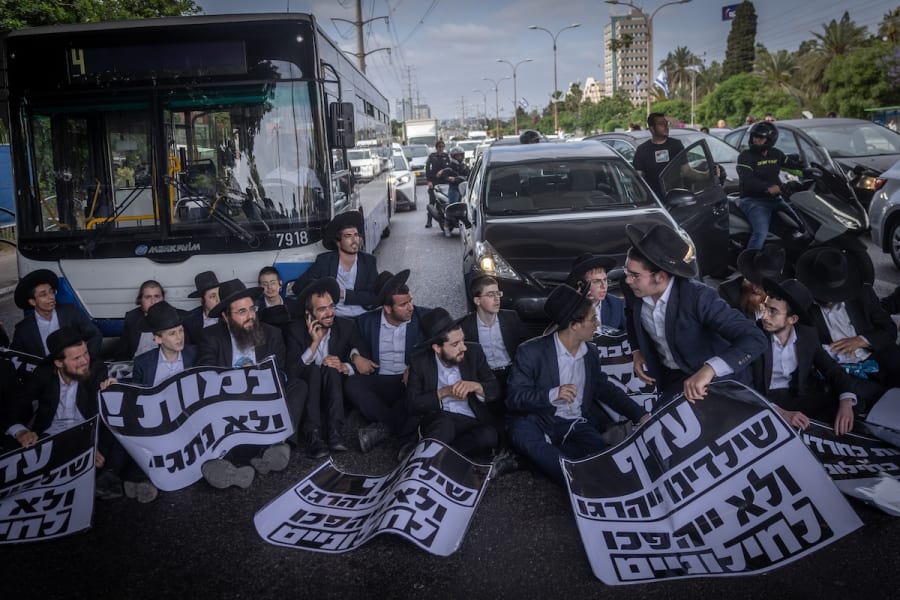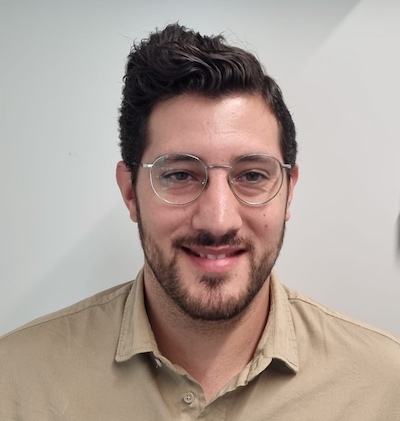After decades of conflict: Could Israel finally be close to solving ultra-Orthodox recruitment to IDF?
Court seemingly poised to push through, wants to see solution

The contentious issue of recruiting Israel’s ultra-Orthodox (Haredi) population into the Israel Defense Forces has accompanied the country since its founding when first Prime Minister David Ben Gurion exempted 400 yeshiva students from military service.
Over the decades, this morphed into a near-general exemption for ultra-Orthodox men, who also received living stipends from the state.
In 2012, the High Court struck down the Tal Law, which regulated a mechanism of deferring army service for several years until ultra-Orthodox men were no longer subject to mandatory army service after reaching a certain age.
Since then, the issue has been a constant source of tension, with Haredi parties threatening to topple Netanyahu’s government if a law is passed against their wishes.
Now, the issue seems to be coming to a head as during Sunday’s hearing, the justices of Israel’s High Court for the first time gave a strong indication that they intend to solve the problem once and for all.
The current war has strongly influenced the debate this time, as the country is in the midst of an almost 8-month-long conflict that has killed hundreds of IDF soldiers and wounded thousands more.
In fact, one of the key lessons from the war, widely accepted by the public, military officials, and intellectuals alike, is the urgent need to significantly expand the IDF to better address future threats.
This can easily be seen by looking at the current situation in the north, where residents complain bitterly of feeling forgotten while Hezbollah destroys their homes and burns their fields.
Israel has started wars in the past for way less – but this time, the IDF is already bogged down in heavy fighting in the Gaza Strip, and many of its reserve units are spread thin across the West Bank, struggling to keep the lid on the boiling tensions.
Among other reasons, first and foremost the pressure from the U.S., the IDF simply doesn’t have the personnel to open another large front in the north, so Hezbollah continues to bombard it mercilessly.
Large parts of Israeli Jewish society feel the burden of fighting and dying in the war falls on them, while their ultra-Orthodox brethren sit in their Talmud schools and pray.
Meanwhile, this Sunday, the High Court heard petitions against the government, which maintains that yeshiva students shouldn’t be drafted, despite the attorney general saying it must conscript several thousand immediately and stop funding the rest.
Observers across Israel’s media landscape were shocked by the sharp tone taken by the justices regarding the government’s position, while largely agreeing with the positions taken by the petitioning NGOs and the attorney general.
They “expressed intense skepticism — bordering at times on anger — toward the claims and remarks of the legal representatives of the government,” wrote Jeremy Sharon, the Times of Israel judicial affairs reporter.
This included justices widely considered to be conservative, like Justice Noam Sohlberg, who insisted that there was an “existential need” for more soldiers.
“We are at war. There’s a crying need [for more soldiers], the flood is now,” he said.
He even scoffed at the attorney general’s position that only 3,000 ultra-Orthodox soldiers should be drafted as a first step, noting that, in 2017, the IDF had already stated it had the capacity to absorb 3,000 Haredi soldiers. “Now, at a time of war, the army can’t absorb 3,000 soldiers?” Sohlberg asked.
In an emotional exchange, the justices excoriated the government’s contention that yeshivas should continue to receive stipends despite the legal framework for the draft deferrals no longer existing.
“The condition for the financial support is that you do not evade the draft,” said Justice Ofer Grosskopf. “If you don’t turn up to the IDF drafting office when ordered, then I would say funds cannot be paid for him.”
The government’s attorney, who was hired instead of the attorney general, who doesn’t support its positions on the issue, retorted that this would have a severe impact on many ultra-Orthodox families dependent upon the stipends, calling it a “matter of life and death for tens of thousands of married yeshiva students.”
“It’s a matter of life and death not just for tens of thousands of married yeshiva students, but for many other people in the country,” Justice Daphne Barak Erez shot back, referring to the thousands of dead and wounded soldiers.
On the other side of the issue, parts of the Haredi society seemingly haven’t realized how the circumstances are different this time, resorting to their usual toolbox of large protests, over-the-top and hateful sloganeering, and clashes with the police.
On Sunday, 16 protesters were arrested during demonstrations in Bnei Brak and Jerusalem. Among the signs seen at the protests were Haredi evergreens like “Secularism is worse than death,” “We’ll rather die than enlist,” and, “Me and my descendants would rather be hanged and not enlist in the army of destruction.”
Police authorities had to resort to using horsemen and water throwers to clear several streets, and later reported being called “Nazis” and “Nukhba terrorists,” a reference to Hamas’ elite force that led the Oct. 7 massacre.
Nevertheless, most observers agree that this time could be different, and a solution to the issue could be closer than ever.
Walla News court reporter Bini Aschkenasy said the Israeli judges are more likely to freeze the stipends than to order the immediate recruitment of thousands, which would risk unprecedented clashes between protesters and the police nationwide.
“The expected ruling will oblige the government to start recruiting yeshiva students, but the instruction will be vague, not immediate,” Aschkenasy wrote.
“However, a ruling by the court… may cause the ultra-Orthodox and the government to seek a solution and compromise. Or it could lead to the end of the government’s days,” he added.
In such a scenario, it is possible the next government will not include Haredi parties, potentially opening a pathway to pass a new IDF draft law without their veto.
Yonah Jeremy Bob, senior military correspondent for The Jerusalem Post, agreed: “October 7 does seem to have made the court and the general public more ready to go to the mat with the Haredim on the issue.”
“If the trend continues, some truly interesting changes will likely take place in Israeli society, whether before or after a future election.”

Hanan Lischinsky has a Master’s degree in Middle East & Israel studies from Heidelberg University in Germany, where he spent part of his childhood and youth. He finished High School in Jerusalem and served in the IDF’s Intelligence Corps. Hanan and his wife live near Jerusalem, and he joined ALL ISRAEL NEWS in August 2023.
You might also like to read this:













